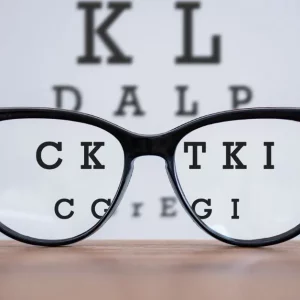Essential oils are readily gaining popularity for individuals seeking a holistic method to treat specific ailments and boost their wellbeing. In fact, by using essential oils for brain injury treatment, individuals may find relief from many problematic symptoms, including insomnia, anxiety, or even memory problems.
Using essential oils can soothe discomfort and boost brain function without the negative side effects of heavy medication. There are many different brands and types of essential oils, each with unique characteristics. The purpose of this article is to help individuals learn about some of the best essential oils for brain injury, and what to consider when starting out.
Use the links below to jump directly to any section of this article:
- Lavender: the most studied essential oil
- Essential oils to boost neuroplasticity
- Cognitive benefits of essential oils
- Essential oils to promote mental health
- Choosing the best essential oils for brain injury
Essential Oils for Brain Injury
Essential oils are compounds extracted from plants that capture a plant’s scent or “essence.” They are most commonly used in aromatherapy, in which individuals inhale the scent through a diffuser. Although many essential oils can also be applied directly on the skin, they typically should be diluted with another carrier oil before application.
There are two main ways that essential oils can reach the brain: by circulating through the blood and/or by being transmitted through the nerves to the emotion control center of the brain, known as the limbic system. These pathways allow essential oils to have various effects on brain activity, many of which can support recovery.
With the wide range of essential oils available, it can be hard to know which oils may be best for brain injury recovery. As with most other treatments, the best essential oils for brain injury vary based on the individual and which symptoms they’re looking to address.
To provide a starting point, the following list includes a few of the most recommended essential oils for brain injury. Consultation with an aromatherapist or other professional focused on natural healing may also be helpful to provide more personalized recommendations. Talking with one’s medical team about any potential risks is also advised before beginning to use essential oils.
Lavender: The Most Studied Essential Oil
While research on essential oils and their potential uses is growing, there is limited research specifically focused on essential oils for brain injury. Possibly because of its wide range of benefits, lavender oil has been identified as the most studied essential oil, appearing in approximately 30% of studies regarding the effects of essential oils on the nervous system.
Benefits of lavender oil include its ability to:
- Improve sleep quality
- Promote autonomic nervous system regulation by reducing heart rate and blood pressure
- Reduce anxiety and depression
- Elevate mood
- Relieve pain, especially for headaches and muscle soreness
- Reduce stress and promote calmness
- Improve immune system functions
In addition to the above benefits, lavender oil has also been shown to improve activities of daily living skills as well as quality of life in those with certain mental health conditions. With so many benefits, it is not difficult to see why lavender oil is amongst the most widely used essential oil.
Because of its potential to effect blood pressure, it is important for brain injury survivors to talk with their doctor before using lavender oil. However, even if lavender oil is not recommended, there are many other essential oils that can also be used to promote recovery.
Essential Oils that Can Boost Neuroplasticity
The process of neuroplasticity is essential for recovering after a brain injury. Neuroplasticity refers to the brain’s ability to adaptively rewire itself. This involves creating and strengthening frequently used neural pathways, allowing healthy areas of the brain to take over functions previously housed in affected areas.
Some essential oils can support this process, including:
- Black Cumin Seed Oil: In animal studies, black cumin seed essential oil has been shown to promote neuroplasticity and increase levels of BDNF, a protein involved in regulating neuronal connections. It also has anti-inflammatory and antioxidant effects, making it an excellent option for brain injury survivors.
- Rosemary Oil: Research has shown that rosemary essential oil has many benefits, particularly for enhancing cognition. In addition to boosting memory, rosemary oil may also promote BDNF production, thus boosting neuroplasticity.
Especially when combined with conventional therapy, these essential oils can promote enhanced improvements. Neuroplasticity is activated through massed practice. Therefore, it is also important to consistently practice affected skills in order to optimize neuroplasticity and recovery.
Essential Oils to Enhance Cognition
Cognitive skills, such as attention, memory, and organization, are often affected after a traumatic brain injury. Adding essential oils can help improve these functions, especially when used in conjunction with cognitive rehabilitation. Essential oils that may boost cognition include:
- Sage Oil: This essential oil has been found to improve cognitive functions like memory and attention. In particular, sage oil has been shown to improve word recall, making it ideal for brain injury survivors struggling with aphasia. In addition, sage oil can be used to help with mood regulation and to combat depression and anxiety.
- Peppermint Oil: Due to its ability to reduce cognitive fatigue and enhance learning and memory, using peppermint oil can be an excellent way to improve cognitive functions. Since the main ingredient in peppermint oil, menthol, can have analgesic (pain-reducing) effects, it can also be used to relieve muscle pain and headaches.
As mentioned above, rosemary essential oil is also frequently used for improving cognition. In fact, sometimes a combination of these oils (such as using rosemary and peppermint together) is used to enhance results.
Essential Oils to Address Mental Health
Depression, anxiety, and other mental health conditions are common after a traumatic brain injury. Furthermore, coping with the secondary effects of brain injury may cause excess stress.
Some essential oils for brain injury can help regulate mood and improve wellbeing, including:
- Black Pepper Oil: In addition to its anti-inflammatory, antibacterial, and antioxidant effects, black pepper oil can help relieve symptoms of depression and stress. Furthermore, one of its main components, piperine, may also help boost cognitive functions.
- Chamomile Oil: Use of chamomile essential oil has been demonstrated to reduce stress, anxiety, and depression. For individuals with post-traumatic insomnia, chamomile oil may also help improve sleep quality.
This is by no means an all-inclusive list of essential oils that may be beneficial for brain injury survivors. In fact, given the many essential oils available and the wide range of potential brain injury symptoms, it would be nearly impossible to compile such a list.
Rather, considering the benefits of the oils described above can open the door to learning more about essential oils for brain injury recovery. Most essential oils have multiple benefits, and using essential oils in combination can further enhance these benefits.
However, before embarking into the world of natural healing and essential oils, it is recommended to talk with someone more familiar with essential oils and their potential benefits and drawbacks. Although there are limited side effects, especially when using essential oils for aromatherapy, it is always better to consult with someone more knowledgeable, preferably an individual in the medical field.
Want 20 pages of brain injury recovery tips in PDF form? Click here to download our free ebook “15 Things Every TBI Survivor Must Know” (link opens a pop up for uninterrupted reading)
Choosing the Right Essential Oils for Brain Injury
For the most part, essential oils are harmless when inhaled. However, it is still possible to have an adverse reaction, which could include rashes, headaches, and asthma attacks. Therefore, it is a good idea to consult with a doctor before using essential oils to help with brain injury symptoms.
When combined with a base oil, essential oils can also be placed directly on the skin. Furthermore, some essential oils may also be swallowed. However, swallowing essential oils can be dangerous, and even fatal in some doses. With this in mind, the safest option is to use a diffuser after gaining a doctor’s approval.
When shopping for essential oils, keep in mind that the quality of the oils often varies. This is because the FDA does not regulate essential oils. As a result, companies can use different standards, which is not always in the best interest of the consumer.
To find high-quality essential oils, look for the following:
- Purity. Some companies will add other substances to their oils, making them cheaper but less effective. It is more likely that the oil is pure if the label lists the plant’s scientific name.
- Quality. Choose an oil extracted through distillation or mechanical cold pressing. Other extraction processes can change the oils and make them less potent.
- Reputation. Do a little research on a company to see if they are known for making high-quality, pure oils.
These three signs should help individuals find essential oils that will work effectively.
Aromatherapy for Brain Injury
While they should not replace traditional treatments, essential oils can help relieve many symptoms of brain injury. Of course, as with all alternative therapies, not everyone will see results.
Essential oils are not miracle cures, and participating in conventional therapies and medical treatments is still highly recommended for an optimal recovery. With this in mind, essential oils can offer a nice boost that can potentially make other therapies more effective.
Hopefully this article has shed some light on the many benefits of essential oils for brain injury recovery. As always, consulting with a doctor or other medical professional is strongly advised before starting an alternative treatment.










